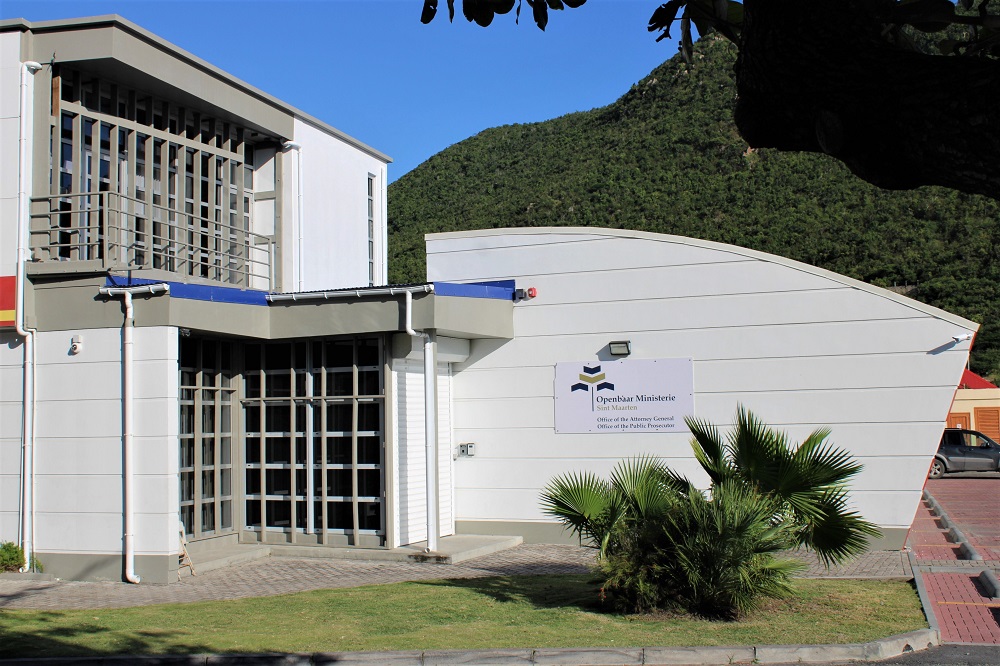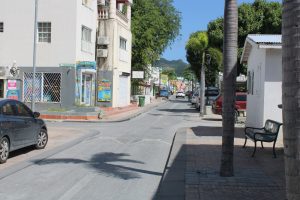The Netherlands releases TBR convicted prisoner, sends him back to St. Maarten

PHILIPSBURG – The Dutch government has sent a prisoner from St. Maarten who was put at the disposal of the government and was detained in the Netherlands back to St. Maarten without having received treatment under the measure of jeugd-TBR. ‘This is very bad for society,” says Chief Public Prosecutor Mirjam Mol. “He returns to society untreated, while there is a court ruling that says he needs to be treated.”
 Shimano Gumbs was a teenager when he fatally shot Etienne Le Blanc in his father’s DVD-store on Front Street on October 9, 2014. The 17-year old, who had fathered 5 children, spent three months in a police cell and was then sent to the Miss Lalie Center (MLC) for youth detention. Psychologists at the center examined him and concluded that he has limited intellectual capacities and needs psychosocial guidance. The court put Gumbs at the government’s disposal but considered this measure alone insufficient and added an 8-year prison sentence.
Shimano Gumbs was a teenager when he fatally shot Etienne Le Blanc in his father’s DVD-store on Front Street on October 9, 2014. The 17-year old, who had fathered 5 children, spent three months in a police cell and was then sent to the Miss Lalie Center (MLC) for youth detention. Psychologists at the center examined him and concluded that he has limited intellectual capacities and needs psychosocial guidance. The court put Gumbs at the government’s disposal but considered this measure alone insufficient and added an 8-year prison sentence.
The verdict of the judge was unique; it was the first time that someone in St. Maarten was put at the disposal of the government. TBR is also rarely imposed in the Netherlands. That only happens if public order and the safety of society are at stake in the opinion of the judge. TBR is intended for the chargeable psychopath. The compulsory treatment starts after the imprisonment, for a period of two years, and can be extended by the judge.
StMaartenNews.com has learned from a reliable source that Gumbs has not been treated in the Netherlands. The Netherlands claims that there was no legal basis for treatment of the prisoner in the Netherlands and has refused to make an exception, the source said.
 Chief Public Prosecutor Mirjam Mol confirms that the Justice Department in St. Maarten has made a request to The Hague for treatment of TBR or TBS convicts in the Netherlands. “Attempts have been made to achieve that, but it failed.”
Chief Public Prosecutor Mirjam Mol confirms that the Justice Department in St. Maarten has made a request to The Hague for treatment of TBR or TBS convicts in the Netherlands. “Attempts have been made to achieve that, but it failed.”
Mol calls the decision to return a TBR convicted person “unfortunate”. “I know that the ministry has been working on it, but it has not led to the result that a person that needs treatment can get that guidance in St. Maarten or in the Netherlands.”
The Public Prosecution Service together wtih all the relevant authorities involved on the island, from the Probation Service, the Mental Health Foundation to the Minister has made an effort to find a sort of solution. Mol said to them: “Talk to him, see what you can achieve. Maybe he wants to cooperate on a voluntary basis. Something has to be organized to ensure that he receives some form of guidance.” The reason for this is because there is no legal basis to force to him to receive treatment.
Mol is very concerned. “The Public Prosecution Service cannot do anything else. I do not have the authority to arrest and detain that man again, because that would be safer for society, of course. That is only possible when he commits a criminal offense again.”
The Chief Public Prosecutor criticizes the limitations with which the law enforcement chain must work. “We stand for the safety of society; we want to make it as safe as possible. We need the tools to do that.”
###
Related links:
The Public Prosecutor’s Office makes early release of prisoners public
‘Government needs to ensure that forensic care is available within weeks’
Forensic Care Taskforce Letter to Justice Minister 20-02-2020
Press Release Forensic Care Taskforce Formed 20-02-2020


























